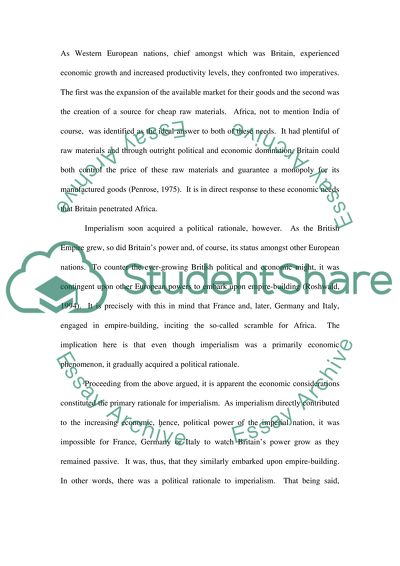Imperialism Essay Example | Topics and Well Written Essays - 500 words. Retrieved from https://studentshare.org/politics/1523083-imperialism
Imperialism Essay Example | Topics and Well Written Essays - 500 Words. https://studentshare.org/politics/1523083-imperialism.


